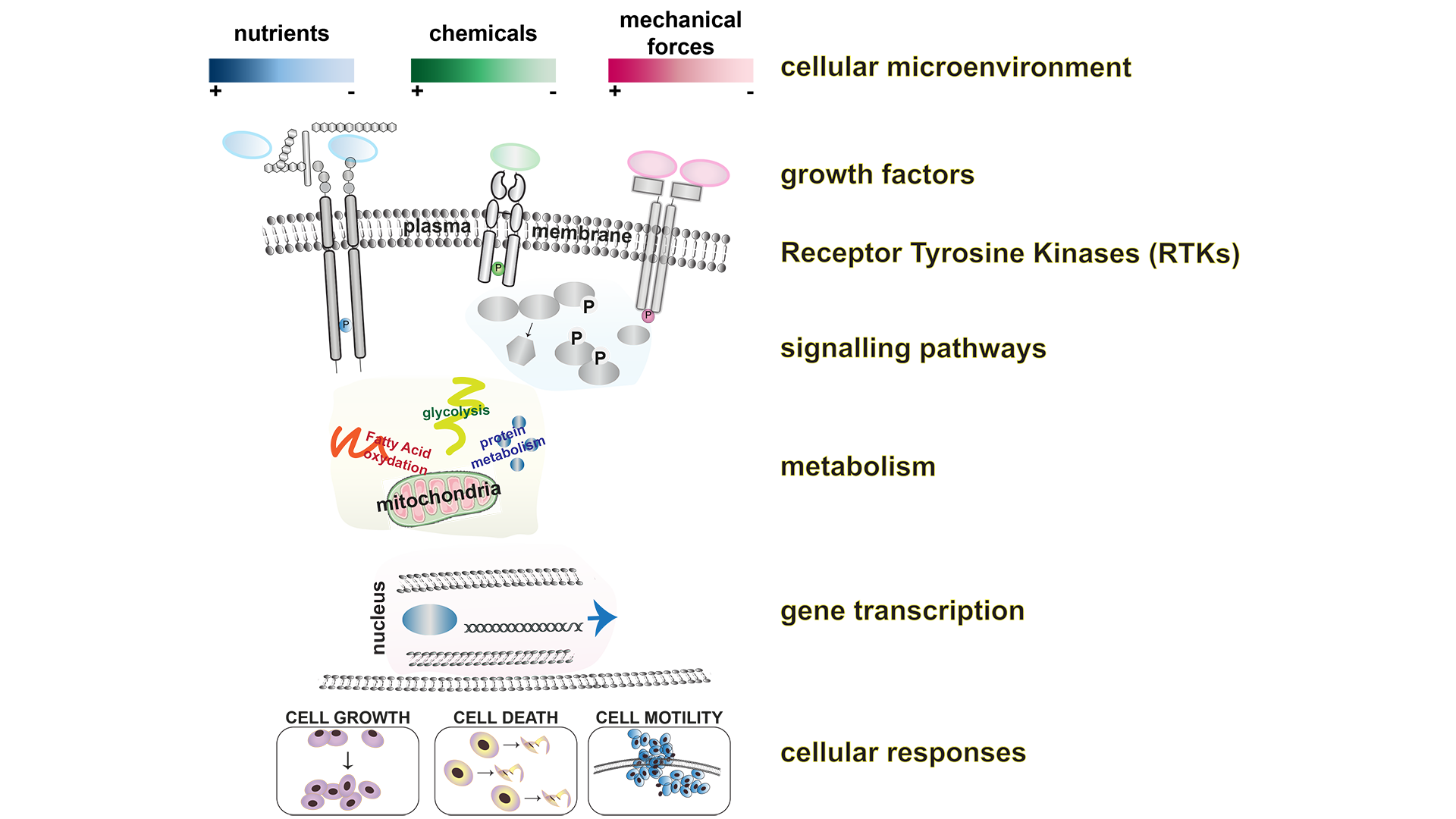Cell Signaling Architecture

The team studies the principles and the regulation of cellular signalling in a variety of mammalian cell models using a multi-disciplinary approach. We focus on how:
- the cellular microenvironment affects signalling architecture, metabolism, gene regulation, and cell survival
- trafficking of Receptor Tyrosine Kinases (RTKs) from and to the plasma membrane - in particular receptor recycling into recycling endosomes - regulates the balance between cell proliferation, cell motility, and cell survival
- RTK functional selectivity determines cell fate
The final goal of our research is to identify and characterize novel proteins with key roles in cellular signalling and cell survival which can be targeted for personalized intervention in human diseases. Furthermore, we will use our data to improve mammalian cell engineering and to increase our understanding of vesicles properties for nanomedicine.
Models and methods
We use mammalian cells, breast cancer models in two- and three-dimensions cell culture, co-culture with other cell types, Patient Derived Xenografts (PDXs), and clinical samples. Our research projects are based on the integration of quantitative mass-spectrometry-based (phospho) proteomics, metabolomics, and transcriptomics with bioinformatics analysis, mathematical modelling, and AI-based analysis, followed by validation of findings using biochemistry, imaging techniques, and functional assays.
Team and Collaborations
By joining our team, you will find an international, motivated, curiosity-driven group of people at different career stages.The team regularly collaborates and meets with a team at the University of Manchester, UK. Furthermore, we collaborate with experts in omics, cell signaling, and bioinformatics, both nationally and internationally, and we are very active in the signaling and omics communities by participating in a variety of international conferences and projects.


